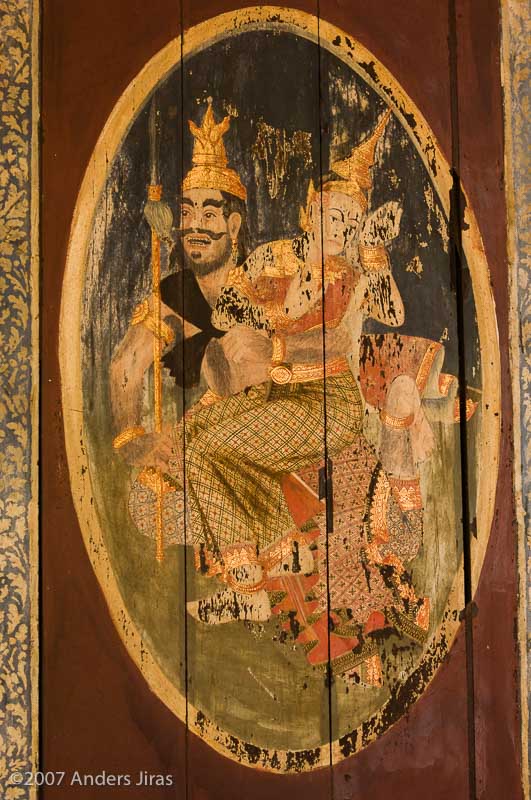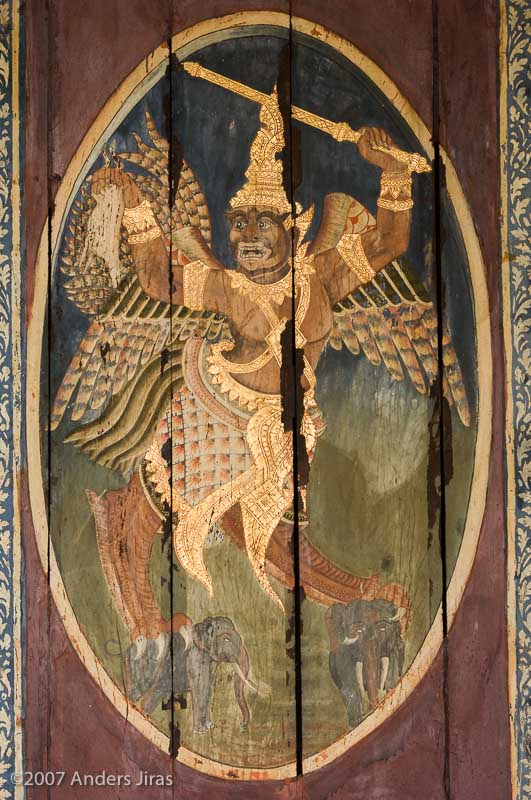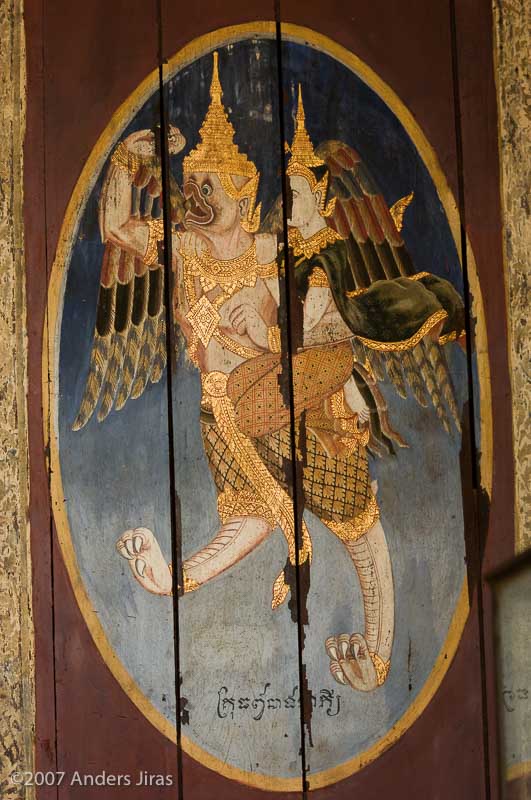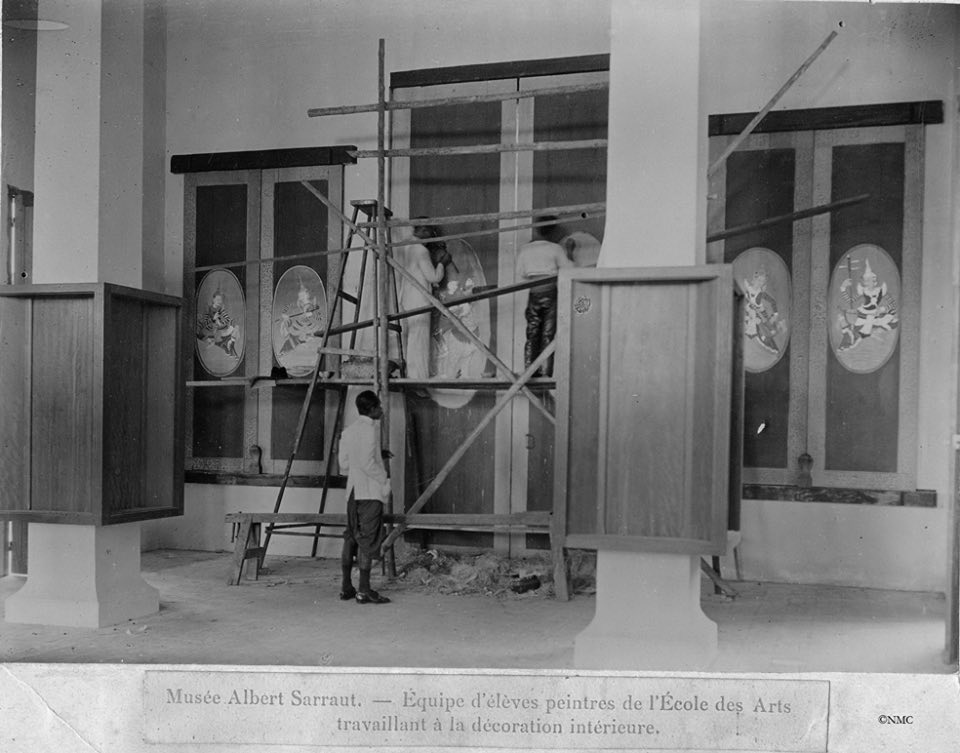Back
Kakei
Dramatic poetry - Lakhaon Komnap
Department of Fine Arts
Director: Uy Ladavan
Wednesday 9 September, 7 pm, 2009
Original drama written by King Ang Duong (1796 - 1860).
Text in Khmer available from the Buddhist Institute:
http://www.budinst.gov.kh/?q=bkPoem2

Kakey: 84 Pages
Compiler: King Ang Duong
Year and place: Reprinted by B.I, 2541 B.E
Meaning: A life of a woman named Kakey who is punished by her husband because she betrayed him.
Kakey or Ka key (from the Sanskrit word for a "female crow"), is inspired in a Jataka tale and has elements of regional folktales. It narrates the story about a woman that is unfaithful to her husband and ends up being punished by him for her betrayal. It contains specific moral lessons that were used in texts in Cambodian schools. Kakey social norms were traditionally taught to high-born young Khmer girls and the story's values have cultural relevance even in present times.
Another work by Ang Duong is Puthisen Neang Kong Rei, a novel also inspired in a Jataka tale. It is about Kong Rei, a faithful wife ready to sacrifice her life for her husband Puthisen the son of one of twelve sisters. Khmer poets and songwriters have used the words "Kakey" for a woman who is unfaithful to her man and "Neang Kong Rei" for a very faithful woman.
https://en.wikipedia.org/wiki/Cambodian_literature
Trudy Jacobsen "Lost Goddesses: The Denial of Female Power in the History of Cambodia", 2008.
p.118-119 Hostages, Heroines and Hostilities:
Ang Duong did not confine his views on female behaviour to legal texts. He was also an author of didactic literature. One of his earliest of works is Neang Kaki, written in 1813, when he was 19 years old, derived from two jataka stories, Kakati Jataka and Sussondi Jataka, both of which deal with the theme of a king experiencing difficulty in controlling his wife. Women, in these stories, are described as inherently promiscuous, and their energies must be channelled into pious activities lest their sexuality rage out of control, bringing dishonour to the king, and therefore the kingdom. In Ang Duong's Neang Kaki, a raks ('demon') with whom the king plays chess is consumed with lust for Queen Kaki and devises a scheme by which he may possess her. The raks assumes the form of the king and summons Kaki to his bedchamber (or, in some versions, visits her in her own), where she is obligated to fulfil the desires of her 'husband'. When the real king discovers what has occurred, Kaki is thrown out of the court in disgrace for her infidelity. The moral of the story is that women are to blame for their transgressions, even when they have been deceived into committing them. This theme is also discerned in Ang Duong's laws; Kram bier, 'Treatise on gaming', held that women who frequented public houses could not be dishonoured in word or deed as they were srei neak leng ('women who gamble') and thus were not respectable.
Ang Duong, Rieong Kaki [1813], Phnom Penh: Buddhist Institute, 1997; Kram Bier [1853], in Codes cambodgiens, t. 2, p. 476.
Back
2007 March, National Museum, window shutters. Painted 1920 by students of what later became the Royal University of Fine Arts.

Kakey

Krut

Krut and Kakey

Musée Albert Sarraut




